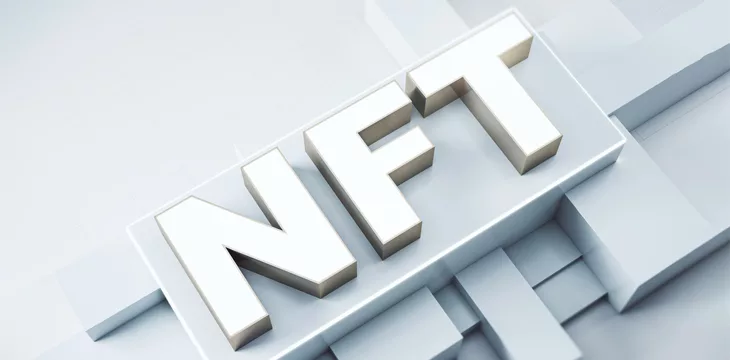Moneygram will offer crypto payment services
by Arthur · November 3, 2022
Moneygram, an international P2P payment company, has announced that it will be possible in the US to use its platform to buy, sell and hold some major crypto assets.
In fact, via a press release, the payments giant said that it will offer services for the purchase of cryptocurrencies in almost every country in the United States and Washington.
The list of supported cryptocurrencies is currently limited to Bitcoin, Ethereum and Litecoin. However, Moneygram said that as early as next year, the list of supported cryptoassets will grow in accordance with legal requirements.
Moneygram and Coinme partnership to support crypto
Following Moneygramannouncing the introduction of crypto assets on its platform, the company strengthens its partnership with Coinme, an American crypto exchange specializing in crypto-to-cash conversion and vice versa.
The news strengthens the already robust business relationship between the stock exchange and the payments giant. As early as May 2021, it allowed people to convert BTC to cash or exchange from cash to Bitcoin.
Alex Holmespresident and CEO of MoneyGram, said:
“Cryptocurrencies add to all the work we do at MoneyGram. From dollars to euros, yen and so on, MoneyGram provides instant access to over 120 currencies around the world, and we see crypto and digital currencies as another input and output option. »
Apparently, the first collaboration between Moneygram and Coinme dates back to the previous year. In fact, Moneygram made a strategic minority investment earlier this year by buying 4% of its ownership.
Since then, Moneygram and Coinme have made it possible to buy and sell Bitcoin with cash in brick-and-mortar retail locations. In fact, the two giants retained a 4% fee and an additional flat fee of $2.75, limited to 12,000 outlets on US soil.
With this latest announcement, Moneygram hinted that the two companies have other initiatives in store to increase the value of the partnership. The intentions of Moneygram are:
“Now that consumer interest in digital currencies is booming, we are in a unique position to respond to demand and bridge the gap between blockchain and traditional financial services with our global network, compatible solutions. level and a strong propensity for technological innovation.”
Also, it is important to note that in addition to Coinme, MoneyGram has also invested in other crypto-related companies, such as Stellar and G-Coin.
The company is also working with Circle on cross-border deals with its USD Coin (USDC). In 2023, MoneyGram will also sponsor the Haas F1 team.
Stellar and Ripple: everyone wants Moneygram
Before the collaboration with Coinme, in 2018 Moneygram had a brief collaboration with Ripple.
The crypto “bank”, Ripple, reportedly tried to work together on a multi-year partnership, but after SEC-initiated processMoneygram backed down and announced a standby for operations with XRP.
In a later announcement, the payments giant had formally declared that the partnership between the two was over.
At this point, Stellar, with its own XLM crypto, would seize the opportunity to take Ripple’s place.
The two cryptocurrencies are competitors in the same part of the market, and the two coins are among the most correlated in terms of price trends in the crypto market. A few months later, Stellar actually launched its own offering to Moneygram to replace its rival.
Thus, Moneygram also initiated a partnership with Stellar, the purpose of which is to improve the retail service for converting cryptocurrency to cash and vice versa.
Therefore, using XLM’s network when converting stablecoin to FIAT is the best solution for the platform.
Stellar thus scores a blow against Ripple in the institutionally accepted cryptocurrency sector and continues its eternal challenge with the crypto loved by big banks.
Amid the rivalry between these two cryptoassets, Moneygram is carefully choosing how to expand its services without suffering the damage of the clashes between the two.
Beyond Moneygram, more payment companies are looking at crypto, why?
MoneyGram’s ambitions towards expansion into digital assets are also shared by other payment platforms.
In fact, many other companies have shown equal or greater interest in the fledgling and ever-growing industry the crypto sector.
This is the case with Visa, which at the beginning of October announced one cooperation with the FTX exchange to offer the crypto debit card in forty countries, especially in Europe, Latin America and Asia.
Visa, another payment giant, is among the first institutions to turn its gaze to the crypto world and implement effective solutions for total inclusion in this sector.
In fact, cards linked to FTX accounts allow users to spend their crypto assets at millions of businesses connected to the payment circuit, paying with local currency, but actually using their digital assets.
For its part, MasterCardVisa’s ultimate rival, has not stood still.
In fact, following Visa’s move, Mastercard published an extensive post on its blog in mid-October about its plans to help cryptocurrencies become mainstream payment.
In fact, Mastercard launched Crypto Secure, a platform that analyzes the reliability of virtual asset service providers and determines which transactions to approve, in defense of lenders and consumers.
Giants or not, all payment services and more are interested in pointing to crypto and new decentralized payment systems. Undoubtedly, for the first time, we are moving towards a revolution and an understanding of a system designed to function without central controls.


